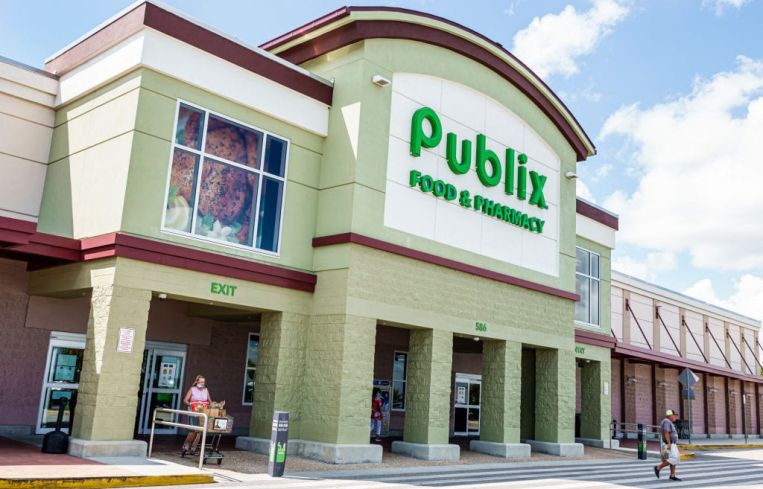Publix Still Adding Stores but Slows Pace of Real Estate Purchases
By Jeff Ostrowski March 10, 2022 4:35 pm
reprints
Publix Super Markets continues to expand aggressively, but Florida’s dominant grocer has scaled back its pace of real estate acquisitions, according to the company’s latest annual report.
Publix told shareholders it operated 1,293 stores at the end of 2021, up from 1,264 a year earlier. However, the share of stores it owned rather than leased slid a bit, to 34.6 percent in 2021 from 34.8 percent in 2020, according to Commercial Observer’s analysis of the company’s annual filings.
As Publix fends off competition from Amazon, Kroger and other out-of-state grocery retailers, it has been locking up prime locations throughout South Florida. In the latest example, Publix plans to open a store at 16024 Pines Boulevard in Pembroke Pines, mere blocks from an existing Publix at 15729 Pines Boulevard.
In a similar sign that Publix is blanketing South Florida with stores, the grocer operates two locations at the corner of Commercial Boulevard and Dixie Highway in Oakland Park. At the northwest quadrant is a Publix that has operated for years, while a second supermarket opened just across Commercial Boulevard in 2018, replacing a former Safeway.
The flood-the-zone strategy is designed to keep out rivals, said Beth Azor, a retail broker and investor and CEO of Azor Advisory Services in Weston.
“It’s definitely protecting the perimeter. It’s a defensive move,” Azor told Commercial Observer. “There are so many new grocery stores, and since COVID, supermarkets have really taken off. Publix would rather dilute the store across the street a little bit than let a competitor come in.”
Meanwhile, Publix seems to have eased up on its pace of acquiring shopping centers. While the grocer’s roster of company-owned stores rose to 448 in 2021 from 440 in 2020, it added 29 stores overall.
Publix rarely comments publicly about its real estate strategy, but it’s clear that the Lakeland-based company went on a buying spree in recent years. In 2006, the company owned just 10.7 percent of its locations and leased the rest, compared with 34.8 percent by 2020.
As Publix gained market share over the decades, it bought real estate to avoid rent increases or unfavorable percentage rent deals, Azor said.
“They were saying, ‘We want to control our destiny here,’” Azor said. “They don’t want to be at the mercy of the landlord jacking up the rent.”
However, it’s possible that Publix simply has run out of easy acquisition targets, and the soaring values of grocery-anchored centers might also make real estate purchases less enticing.
Publix reported record sales of $48 billion in 2021. Shares of the company are not publicly traded, but its employee stock ownership structure means Publix is required to file some financial disclosures with the Securities and Exchange Commission.
Jeff Ostrowskican be reached at jostrowski@commercialobserver.com.



